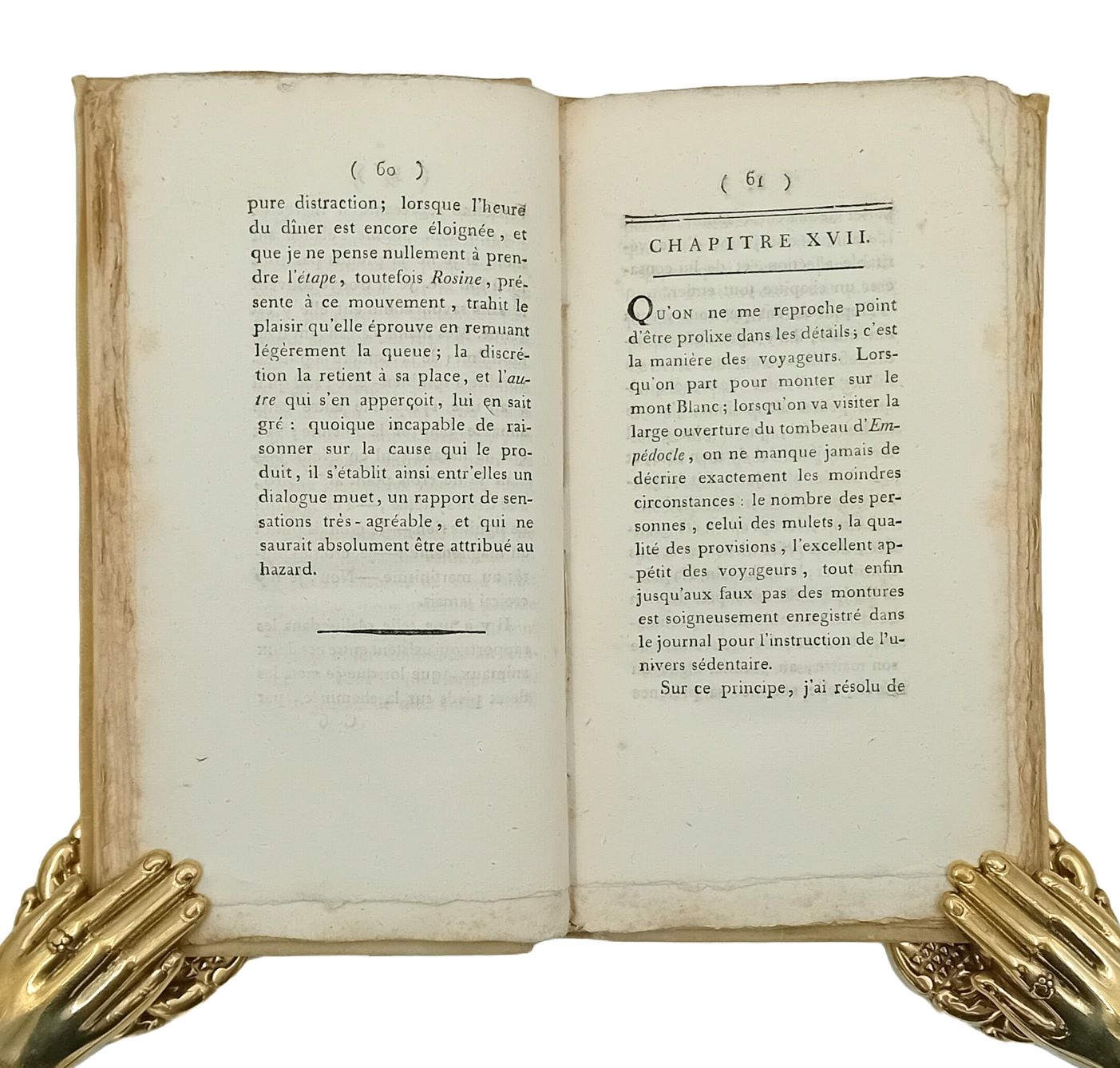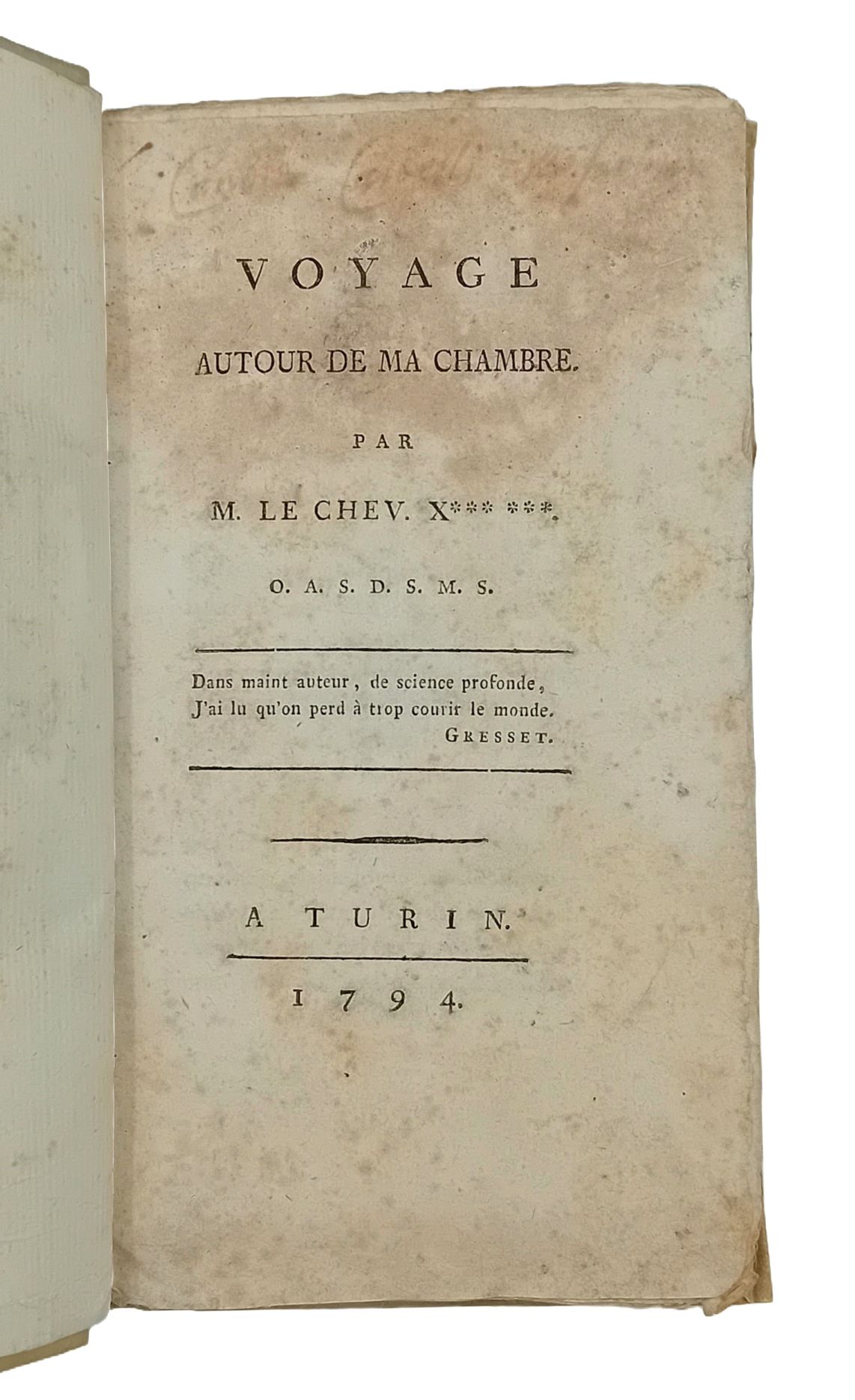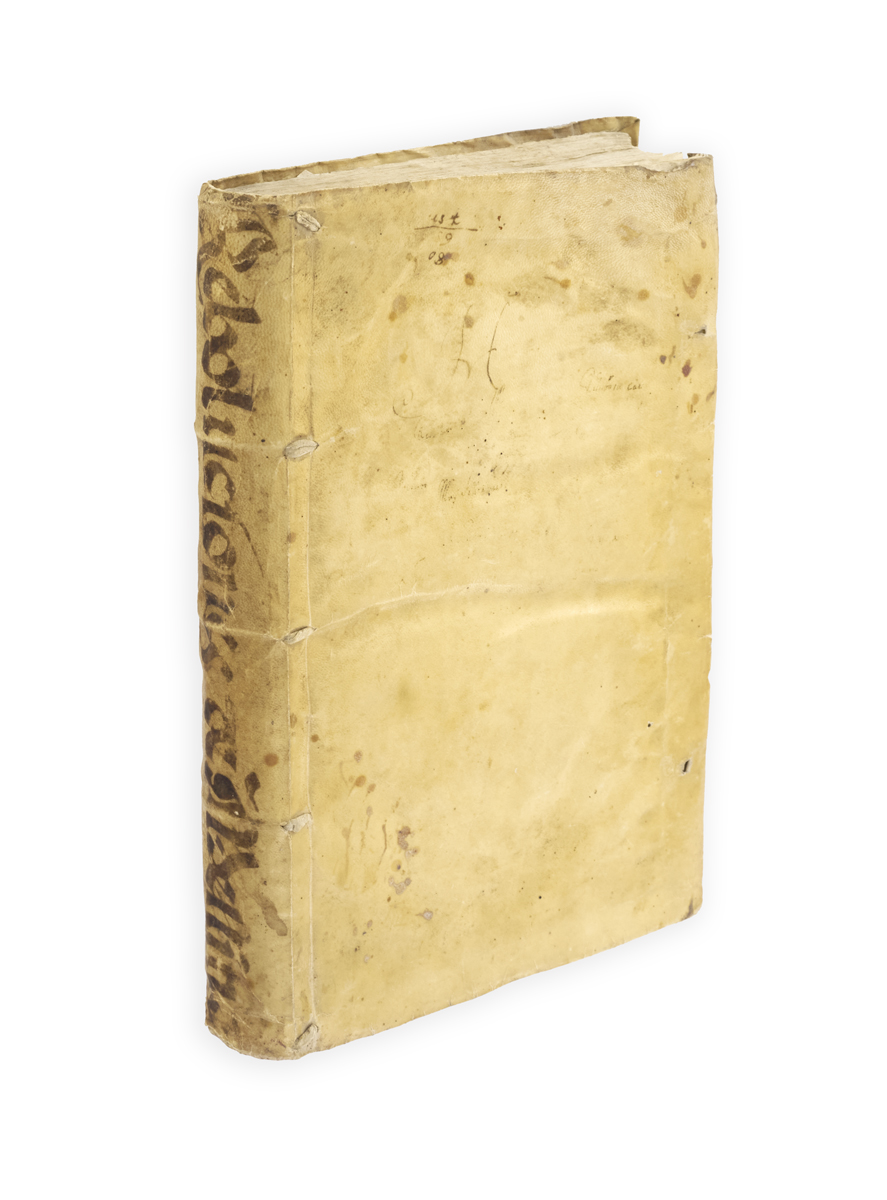

A TRAVEL OF THE MIND DURING FORCED ISOLATION IN A ROOM
[MAISTRE, Xavier de.]
Voyage autour de ma chambre par M. le Chev. X*** *** O. A. S. D. S. M. S. [Officier au service de Sa Majesté Sarde].
Turin, 1794 [Lausanne, Isaac Hignou, 1795].
12mo, pp. 188, [2, errata]; sporadic light foxing, but overall a very good and clean copy, uncut, bound in c.1900 full vellum, gilt lettering piece to spine; contemporary ownership inscription to title, washed, resulting in light browning of the upper portion of title page; bookplate of Luigi Cora (1873–1947), industrialist and celebrated collector of books and art from Turin, to front pastedown.

Added to your basket:
Voyage autour de ma chambre par M. le Chev. X*** *** O. A. S. D. S. M. S. [Officier au service de Sa Majesté Sarde].
First edition, rare, of the celebrated fantasy novel Voyage Around My Room, a parody of the grand travel narrative tradition, by Xavier de Maistre (Chambéry, 1763 – Saint Petersburg, 1852).
A Savoyard officer in the army of the Kingdom of Piedmont-Sardinia, de Maistre wrote the Voyage during the 42 days he spent in solitary confinement in his room in the fortress of Turin, to which he was sentenced for engaging in a duel.
In the 42 chapters of the book (one for each day of confinement), de Maistre recounts the sedentary journeys through his square room, of a perimeter of thirty-six paces, which he explores thoroughly, by walking in straight lines, diagonally, or in zig-zag, often balancing on the rear legs of his beloved armchair. In his travels, de Maistre carefully describes all the items he encounters, starting from his bed and other pieces of furniture, to the paintings and engravings on the wall, including the portrait usually most appreciated by his guests: the mirror. Each object presents the author with the opportunity for elegant digressions, witty anecdotes, and philosophical observations, often based on current morality. The finding of a dried rose in a drawer, for example, develops into a disquisition on unrequited love, where a woman refuses the gift of a flower because she is too busy combing her hair to take her eyes off the mirror. The author’s monologue often turns into a dialogue between his soul and his body, which engage in constant arguments, though always with the utmost courtesy. The novel, written in the midst of revolutionary turmoil, expresses both the temptation of an escape from everything, albeit imaginary, and the utopia of a studious retirement.
Both place of printing and date are false; the novel was in fact published, unbeknownst to the author, in Lausanne in 1795 at the expense of his elder brother Joseph, the renowned philosopher and a key figure of the Counter-Enlightenment, who was then a refugee in Switzerland. Like his brother, Xavier de Maistre was a convinced counter-revolutionary and fierce opponent of Napoleon and therefore, after the French invasion of Savoy, refused to swear allegiance to Bonaparte and chose instead to join the Russian army, eventually attaining the rank of major-general, and taking residence in Saint Petersburg.
Barbier, IV, 1060; Cioranescu, II, 41876; Cohen de Ricci 148; Le Petit, p. 573; Lewine 62; Monglond, La France révolutionnaire et impériale, III, 229; Quérard, I, 335; Rahir, Bibliothèque de l’amateur, (1907) p. 276; Sander 159.

